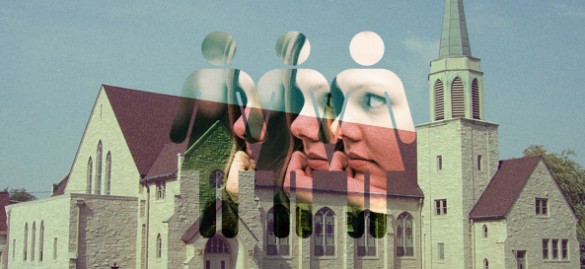This past week has seen two sets of very different responses to the way in which people and companies deal with the “gay issue”. Many countries and states around the world have made it illegal to discriminate against people on the basis of sexuality. This has made it difficult for certain companies to continue their anti-gay staff policies, many of which have been based on religious beliefs.
So, last week, World Vision made an announcement that they would not discriminate against any staff members on the basis of sexuality. The conservative Christians went crazy, quickly mobilising to withdraw their support of this organisation. This meant directly impacting the lives of many extremely poor young people who are the recipients of the aid and support of World Vision. I wrote about this last week here. These Christians stated that they were no longer willing to fund food, water, clothing, and shelter to children and communities sponsored by World Vision, and that they would “weep for the children” who will suffer as a result of pulled sponsorships. They blamed gay and lesbian people (and divorcees and single parents) for their own actions.
This past week, a similar story unfolded in the same part of the world, but with different results. Brendan Eich was appointed as CEO of Mozilla earlier this month (this is the company that makes Firefox and other software). Brendan made a $1,000 donation to an organisation that supports Proposition 8 in California – this is a law that banned gay marriage in that State. When this was discovered, many employees, many users of the company’s software and many others complained. Brendan has been dismissed. You can read the story here.
The chairman of Mozilla stressed that Mozilla supports equality for all regardless of race, gender or sexual orientation, and apologised for delaying a response and causing more hurt to their community.
What a contrast.
Jesus made it very clear: the world will know who is a disciple of Jesus and who is not by their love. Not by your theology. Not by the version of the Bible you read from. Not be which church you attend. Not even by your thoughts or actions. By your love. (John 13:35; Matthew 7 is also worth reading in this context).
Paul was also clear that love is the pinnacle of spiritual expression. Without love, everything else you do and believe and say and think is worth nothing.
I’ll leave it to you to decide, but I know for sure which of the two responses above is more loving. I know which of the responses above is more Christ-like.
God have mercy on His church.
And may you and your church respond more appropriately than the worst parts of society.





 Rachel’s blog continually returns to this topic, as it remains a key area of division and confusion in many churches today. In the past few weeks she has focused her attention (again) on the so-called “household codes” as a key to interpreting what the New Testament has to say about women and their role in spiritual communities. I think she is spot on about this – once you see the context in which Paul and others were writing, and understand how their instructions match up against what was being said in society at the time, I think there is only one answer, and that is to let women lead – as equals with men. Of course, this also has implications for how Christian homes are structured and the relationship between husband and wife as man and woman.
Rachel’s blog continually returns to this topic, as it remains a key area of division and confusion in many churches today. In the past few weeks she has focused her attention (again) on the so-called “household codes” as a key to interpreting what the New Testament has to say about women and their role in spiritual communities. I think she is spot on about this – once you see the context in which Paul and others were writing, and understand how their instructions match up against what was being said in society at the time, I think there is only one answer, and that is to let women lead – as equals with men. Of course, this also has implications for how Christian homes are structured and the relationship between husband and wife as man and woman.